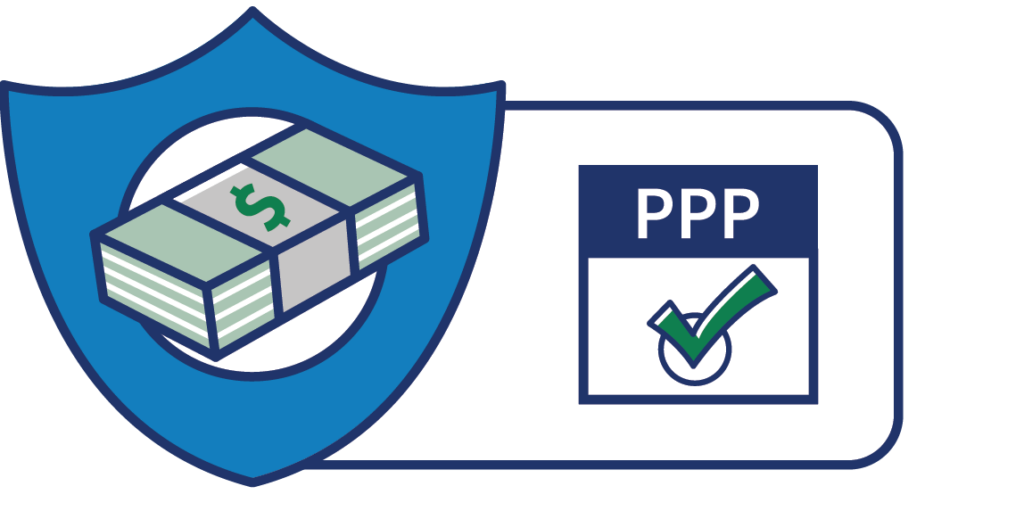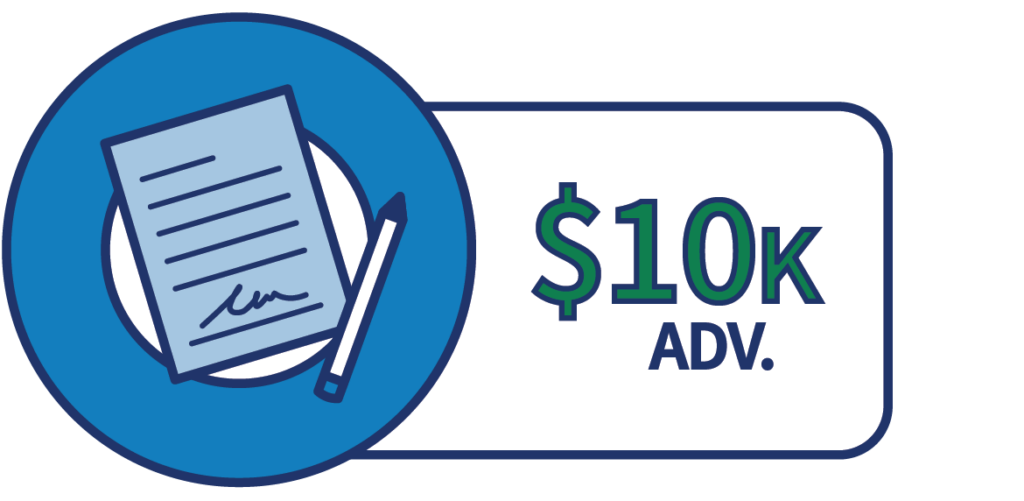

Updated April 24, 2020
The Coronavirus Aid, Relief, and Economic Security (CARES) Act passed by Congress is intended to provide small business owners with resources needed right now during the COVID-19 crisis. These include an array of resources to assist small businesses, non-profits, and other employers. An additional $310 billion allocation of funding for the Paycheck Protection Program, or PPP, was approved by Congress on April 24.
Read more at the Small Business Administration (SBA)

Summary
- The Paycheck Protection Program: A loan that provides eight weeks of cash-flow and can be forgiven under specific guidelines.
- Economic Injury Disaster Grants and Loans (EIDL): A low-interest loan for small businesses and can also provide emergency advance within three days of $10,000.
- Pandemic Unemployment Benefits: Allows workers who do not have a long enough work history to receive unemployment benefits.
- Small Business Debt Relief Program: A loan program that allows business owners to borrow up to $5 million who do not qualify for credit elsewhere.
- Changes to tax filing for businesses: Extension of tax filing deadlines.
- Tax Credits for Small Businesses: Tax credits for businesses related to employee coronavirus related paid leave.
- Non-profits: 501(c)3 non-profits with fewer than 500 employees are eligible for SPA 7(a) loans.
Paycheck Protection Program (PPP)

The Paycheck Protection Program (PPP) provides small employers eight weeks of cash-flow assistance through loans guaranteed by the federal government to maintain their payroll through the COVID-19 crisis. Loan forgiveness is provided by the SBA for employees that are kept on the payroll for eight weeks and the money can be used for compensation, the continuation of group healthcare, rent, mortgage interest, or utilities.
It is an SBA 7(a) product that is available for application through your certified SBA lender. The Paycheck Protection Program will be available through June 30, 2020.
Go to the Michigan Paycheck Protection Program website >>
Go to the federal Paycheck Protection Program website >>
Economic Injury Disaster Grants and Loan (EIDL)
The EIDL is low-interest, fixed-rate loan that can provide up to $2 million in assistance for small businesses. The EIDL program provides U.S. Treasury loans and applicants apply directly at SBA COVID-19 Economic Injury Disaster Loan. The EIDL loan can be used to cover fixed costs including mortgage payments, utilities, inventory, and payroll due to lost revenue as a result of COVID-19, it cannot be used to replace lost sales. The EIDL is also available to 501c3 non-profit organizations.

The EIDL grant provision provides a $10,000 emergency advance to small businesses and private non-profits impacted by COVID-19 within three days of applying for an SBA Economic Injury Disaster Loan (EIDL). A small business must first apply for an EIDL and then request the advance in the application. The emergency grant provision can be a “non-repayable advance” and can be used for employee payroll, sick leave, increased production cost due to COVID-19 supply chain disruption or to pay business obligations (debts, rent and mortgage payments).
Note: A business cannot have both an EIDL loan and a Paycheck Protection Program (PPP) loan to cover payroll expenses. Duplicate loans from the EIDL and PPP programs cannot be used for the same expenses.
Pandemic Unemployment Benefits:
Under the CARES Act, self-employed workers or employees who do not have a long enough work history to qualify for state unemployment insurance could receive unemployment benefits. Pandemic Unemployment Assistance increases the eligible unemployment benefit by an additional $600 per week. State and federal unemployment assistance will extend 13 additional weeks, covering 39 weeks. Pandemic Unemployment Assistance requires a qualifying experience related to the Coronavirus as defined in the CARES Act.
Workers eligible for expanded benefits now include:
- Independent Contractors
- Gig economy or freelance workers
- Small business owners
- Temporary or seasonal workers
Apply for unemployment benefits with the State of Michigan >>
Small Business Debt Relief Program
Under the 7(a) SBA Express Loan program, a borrower who does not qualify for credit elsewhere may borrow up to $5M. Disaster loans are not eligible. The SBA 7(a) Express Loan has various types and financing can provide short-term or long-term working capital to purchase an existing business, refinance current business debt, or furniture, fixture or supplies.
Learn more about the types of 7(a) SBA loans >>
Changes to Business Tax Filings
The federal income tax return due date has been extended to July 15, 2020. Employers can defer paying the employer portion of certain payroll taxes through the end of 2020 and pay deferred amounts due in two equal installments, at the end of 2021 and 2022. Deferral is not provided to employers who apply for payroll assistance loans under SBA 7(a) (i.e., the Payroll Protection Program).
Tax Credits for Small Businesses
Refundable tax credits will be available for private-sector employers that are required to offer coronavirus related paid leave to employees. The IRS will be posting information on their website (www.irs.gov), including information on how to obtain advance payment of these credits.
Businesses that are not eligible for or choose not to participate in the Paycheck Protection Program (PPP) are eligible for an employee retention tax credit.
Non-Profits
501(c)3 non-profits with fewer than 500 employees are eligible for SPA 7(a) loans through a certified SBA lender as well as Economic Injury Disaster Loan (EIDL), directly through the SBA.